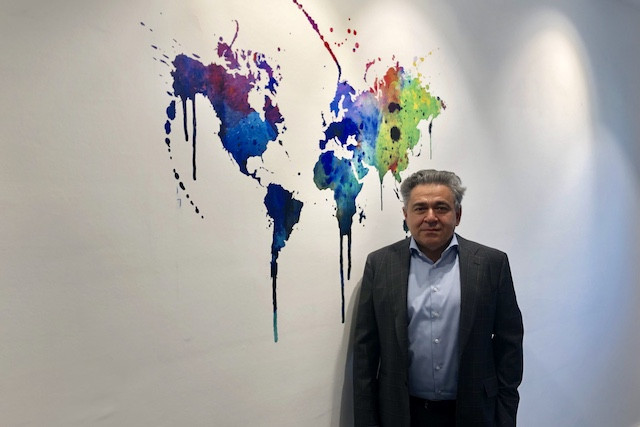Located in the Luxembourg House of Fintech (LHoFT), VNX Exchange provides a digital platform using blockchain technology which lists assets to make them available to the general public--including investors who may not have a large amount of capital to invest upfront, or who are unwilling to see their investment locked over the longer term as a startup is taking off.
Khanumyan says he was approached by VNX Exchange founder and CEO, Alexander Tkachenko, to take part in the project, in part because the latter was aware of the former’s role in supporting CTC Media, founded by American Peter Gerwe, to get listed on Nasdaq in 2006, which Khanumyan csays was “one of the largest IPOs of media companies in Europe”. (As of 2016, its stock has ceased to trade on Nasdaq.)
“The idea we came to is there’s a huge global market, with people investing millions of capital, but it’s not liquid, so let’s unlock it,” Khanumyan told Delano in an interview.
As Khanumyan explains, on one hand their goal is to democratise what traditionally has been a relatively exclusive realm for the wealthy. But there’s also a bigger picture to transform startups and promote entreprenership in a different way: “The more velocity capital has, the more efficient the economy…It’s not only changing the industry, but it’s also making it more efficient, bringing in capital [to startups] to develop their businesses.”
SE Asia expansion
Khanumyan calls Luxembourg “the epicentre of financial Europe”, adding that the grand duchy has been an easy location for setting up, especially due to the government’s support in digitalisation and fintech. But he also sees their platform as one which can help pipeline new business to local companies. He adds, “Luxembourg is really smart in finding these niches and being number one in the world,” citing fintech and satellites as a couple examples.
In addition to growing its own local presence and working with Luxembourg and European partners, VNX Exchange anticipates rapid expansion in southeast Asia, where favourable growth projections are expected over the short- and medium-term.
The company currently has a footprint in Singapore--which topped this year’s IMD World Competitiveness ranking--and they anticipate that Singapore and Hong Kong will be interesting for them down the road. But South Korea is particularly interesting for them both from the investor and startup side. “They are very advanced in developing startups and focused on the market startups, like changing behaviour, and engineering,” he says. “They have investors willing to go outside Korea, they have VCs and startups that want exposure outside.” The company has a close partnership with consulting company, Luxko, which supports Korean-Luxembourg bilateral business development, and the timing is ripe: deputy PM and economy minister Etienne Schneider (LSAP) will lead an economic mission to South Korea on 15-18 July, following prime minister Xavier Bettel’s (DP) official visit to the country last summer.
Trust in a new era
As of 2018, VNX Exchange has partnered with the University of Luxembourg’s SnT centre, aiming to continuously improve security mechanisms, particularly on digital asset platforms.
Khanumyan’s view on trust is a unique one, given his background. Having started his career as a journalist for local papers in 1979 in Tbilisi, just over five years later he was in a management role, later becoming a deputy chief editor. This eventually led to his role in CTC Media, which was born through Gerwe’s vision to bring commercial television channels to the region following the collapse of Soviet Union.
“Even in the Soviet-era, [journalism] was a well-respected profession…there were special constraints, of course, but it was still really exciting because you could do a lot of positive things within the system to help people, resolve problems,” he says.
In his over 20 years’ experience in media, Khanumyan says the problem of today’s media environment is “people should be much more responsible”, adding that eventually the media landscape will likely be held more accountable through rules and then laws. “The only thing that will change forever is that we are losing privacy. That’s absolutely a new thing that mankind is facing…it’s a new way of life.”
